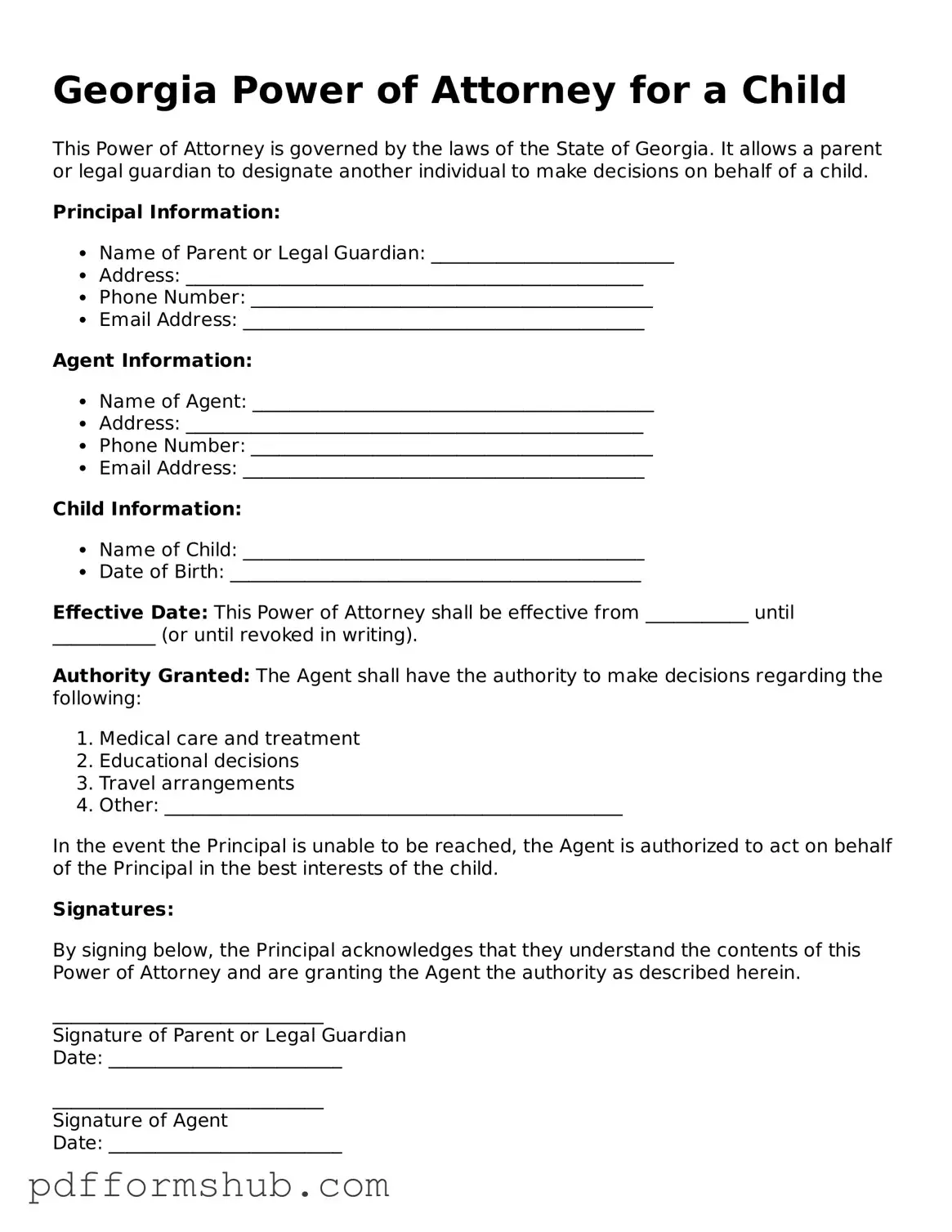Attorney-Verified Power of Attorney for a Child Form for Georgia State
The Georgia Power of Attorney for a Child form allows a parent or legal guardian to grant another adult the authority to make decisions on behalf of their child. This can be especially helpful when parents are unable to care for their child temporarily. If you need to fill out this important form, click the button below.
Customize Form

Attorney-Verified Power of Attorney for a Child Form for Georgia State
Customize Form

Customize Form
or
Free PDF Form
Short deadline? Complete this form now
Complete Power of Attorney for a Child online without printing hassles.